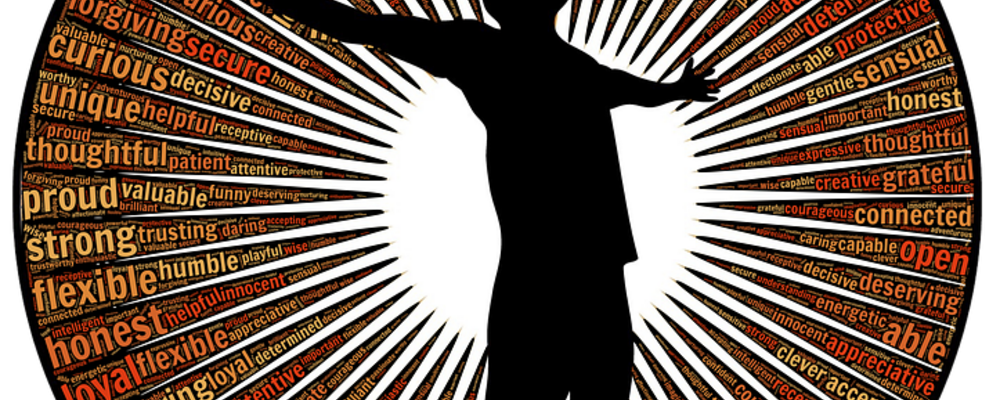
A shared wholeness
South African researcher Ben Truter provides his thoughts "on a shared wholeness".
[Posted on 24th August 2022, by Ben Truter]
It is a truism in esoteric and spiritual studies to speak of Mind as a universal whole – and thereby to be reminded that ‘whole’ and ‘heal’ share an etymological root. In our service with ESSENCE children and adults – where I (as a Clinical Psychologist) and approximately 40 other clinicians work - across multiple demographics in an emerging economy here at the foot of Africa, the theme of ‘whole’, surfaces with a regularity, consistency and frequency that has begun to haunt my thinking.
After all, in a clinical setting, our clients come to us because they, simplistically, do not feel “whole”. Although, often they do not seek or expect healing in any traditional sense, as a minimum they hope for some restoration of wholeness – with their relationships with themselves, with others and with society at large.
ESSENCE as a concept guides holistic thinking, ‘though anchored in detailed empirical observations of the children and parents affected by neurodevelopmental problems. With Amy Slogrove, Eva Billstedt and Christopher Gillberg and a team from Stellenbosch University, I am working on a large-scale project in the Breede Valley, a couple of hours inland from Cape Town, to validate the feasible use of a rapid screening, the “ESSENCE-Q”, for early identification of neurodevelopmental conditions in children from environmentally-deprived rural communities – and to measure NDD incidence levels.

The Early Symptomatic Syndromes Eliciting Neurodevelopmental Clinical Examinations (ESSENCE) referred to in the framework name are the domains of general development, communication and language, social inter-relatedness, motor coordination, attention, activity, behaviour, mood, and/or sleep – and are presented as a coherent syndromic whole (ESSENCE) because problems in one area before age 5 years often predict major problems years later in the same or overlapping developmental areas. ESSENCE proposes urgent and holistic clinical response rather than fragmented specialisation. In deprived settings, access to clinical specialisms is, so early, holistic response benefits the child and child services in under-resourced economies.
At some point almost all clients experience fragmentation, fracturing and dissolution. Yet, especially when older, and past what used to be called a ‘disabling’ state, clients bear witness to an internal experience of remarkable wholeness, ‘though it may take some time to articulate. It is as if they reclaim an inherently whole perceptual experience, at odds with the diagnostic and social image presented – and by reclaiming it are healed.
The clinical literature, of course, supports this as do most diagnostic models, tools and frameworks. Recently, I have begun to engage with the experience, apart from the clinical setting, almost as a clinical transference, in which the promise of wholeness for clinical practice (and the practitioner, personally) is nurtured and developed, alongside the promise of wholeness for the individuals seeking it. It is an experience of gratitude. In specific relationships, that gratitude itself becomes the healing modality – not by intent, design or choice, but through human connection in which clinician and patient meet and collaborate.
It is said that no idea has any reality until it is shared. Facing reality with someone is a sharing of ideas of the world – both across the divide between the internal and the external and in adapting to the constraints of contrasting ‘neurologies’ within families, schools, communities and organisations. I feel that adaptation and relationship is at the very core of our work, to enable mutual learning and growth. In the teasing out of reality, as it is so differently experienced, that the whole emerges – something shared, not separate; whole, not fractured.

A client recently bore witness to his experience that the world is a numinous expression of Mind and that he experiences himself to be, perhaps falteringly, but even so, assuredly a part of that Mind – and, in his words, ‘not at all the image I or other have of me’.
While I might, or might not, make practiced and informed interpretations of such a statement, there is the simple truth that his statement and the realisation in himself that it represented, resonated with me, as if he spoke for me too. And invited me, regardless of the clinical setting, to join and experience it, in the moment. Not as therapist, but as person.
I afterwards wondered if I had mis-stepped. Had I strayed from the clinical path? Had I colluded in some fantasy? Had I perhaps been overwhelmed by some 21st Century oracle, who spoke for me and all my species? None of this was true, but all of it seemed possible.
The idea that ‘we’ – in a family, church, community, school, tribe, political party, supporters of a soccer team or indeed even a clinical service – can be of ‘one’ mind, can be whole and in agreement, is as ancient as language itself. The hope of it drives peace deals and, of course, wars when that hope is dashed. But the idea that our minds themselves are somehow party to universal consciousness goes beyond these. It supposes a broader, ‘universal’ reality of ‘mind’ that contains ‘us’ (and our lived experience of mind) and that, in both essence and ESSENCE, is the defining reality. A lived experience of an absolute ground of being.
At Christopher’s suggestion, I asked my client to read this post, and he said: the idea of ‘whole’ is not as ancient as language – it is the very idea of language. Language seeks precision and meaning in tangible objects, so it fragments the world, naming everything separately. But its purpose is to bridge the divide. So, in both its content and in its purpose, it keeps the division and the fragmentation front of mind. What else does silence promise, if not the whole?
Living as I do in the most unequal society in the world, the idea of ‘whole’ takes on a peculiar resonance. Equally, working with people who have been diagnosed on the basis of a perceived fragmentation, engenders in me an overwhelming gratitude for the direct experience of that ‘whole’.
With thanks to SW for his inspiration
[This is a blog. The purpose of the blog is to provide information and raise awareness concerning important issues. All views and opinions expressed are those of the writer and not necessarily shared by the GNC.]
